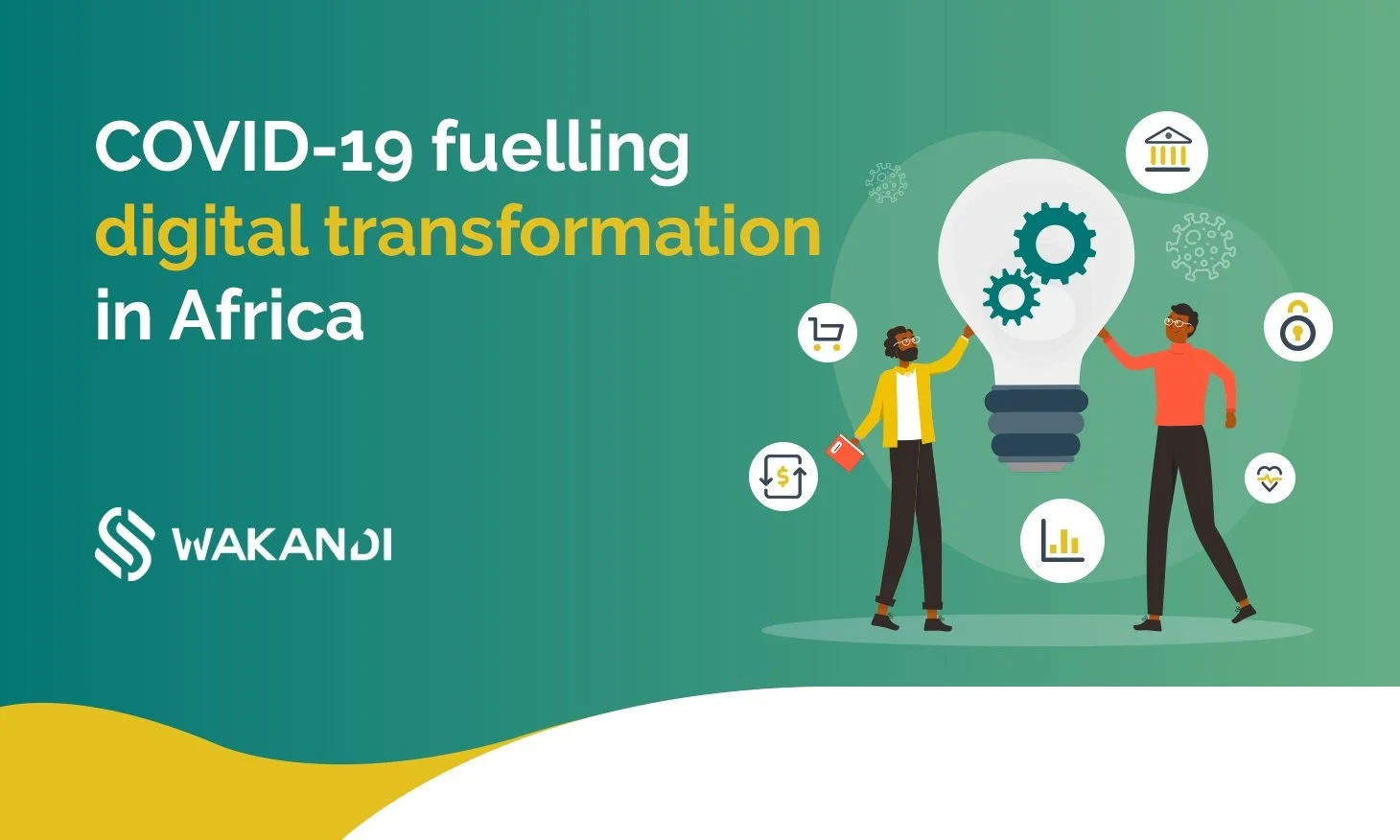COVID-19 fuelling digital transformation in Africa

COVID-19 pandemic and the resulting containment measures have undoubtedly slowed down socio-economic growth. Like the rest of the world, Africa is witnessing unprecedented impacts on the overall development of the economy.
The pandemic has revealed the increasing importance of technology and digital solutions to respond effectively to the situation. 68% of banks in Africa plan to invest more in digital transformation over the coming years. Businesses and organizations are pushing to go digital to ensure continuity which we call #thenewnormal.
Several African companies have shown a strong willingness to leverage technology and build solutions to help people fight the crisis. According to reports, many of these solutions can be implemented quickly, and have proven helpful in the fight against COVID-19. That said, digital technology has been vital in this pandemic. It has enabled collaboration, communication, and business operations even in this tough time where people can barely move out of their homes.
COVID-19 as the catalyst
The situation has also impacted the digital payments landscape. According to recent research from Bain & Company, before the pandemic, they predicted that digital payments would account for 57% of all transactions by 2025, but they now estimate it to be 67%. Major government organizations like The Central Bank of the Congo (BCC) are encouraging digital platforms for transactions to curb the spread of the virus. They have also urged mobile network operators (MNOs) to allow the interoperability of payments for a better user experience and faster transactions.
Riding on the wave of COVID-19, many African startups aim to build innovative digital solutions to fight against the challenges posed by the pandemic.
- FabLab, an innovation hub in Kenya, has created mSafari, an application that can help track people on public transport.
- Morocco launched a tracking app called Wiqaytna 6. It notifies people when they come in contact with a COVID-19 positive person.
- Global Mamas in Ghana have designed contact-free, solar-powered hand-washing stations.
- Enova Robotics has developed a robot to broadcast safety instructions and ensure proper lockdown in Tunisia.
Wakandi is one of the Fintech companies aiming to boost digital transformation with the help of technology. We have launched the Credit Association Management System (CAMS) in Tanzania, South Africa, and The Gambia to help local savings groups make transactions and manage finances online. Thousands of savings groups can use the system to manage savings and loans and avoid cash transactions and physical meetings.
You can read more about such solutions developed in Africa here.
The United Nations Economic Commission for Africa (ECA) collaborated with Portulans Institute to measure how countries leverage technology amidst the pandemic. The report shows that digital innovation has increased in Africa. 130 new digital hubs have been opened in the past two years, taking the total to 400 hubs in Africa.
The report also shows that the race to respond to the pandemic stimulated innovation across African countries. It indicates the potential of startups and companies towards digital transformation.
Digitalization has become a priority
Digital technologies have been at the forefront of fighting the COVID-19 pandemic. However, despite many companies trying to innovate, challenges still remain for the people. African countries must address the socio-economic gap that feeds the digital divide, which is the uneven access to Information and Communication Technologies (ICT) in societies. That said, only 28% of the African population has access to internet connectivity. Digitalization needs to scale up to accelerate substantial growth in Africa.
The startup generation has leveraged the power of digital technology to start the fight against the virus. They have shown how vital technology could be when physical meetings and contact is not an option. Technology is pivotal in facilitating business continuity, but it needs to be supported by proper infrastructure and investments, digital skills, and better online security.

Comments